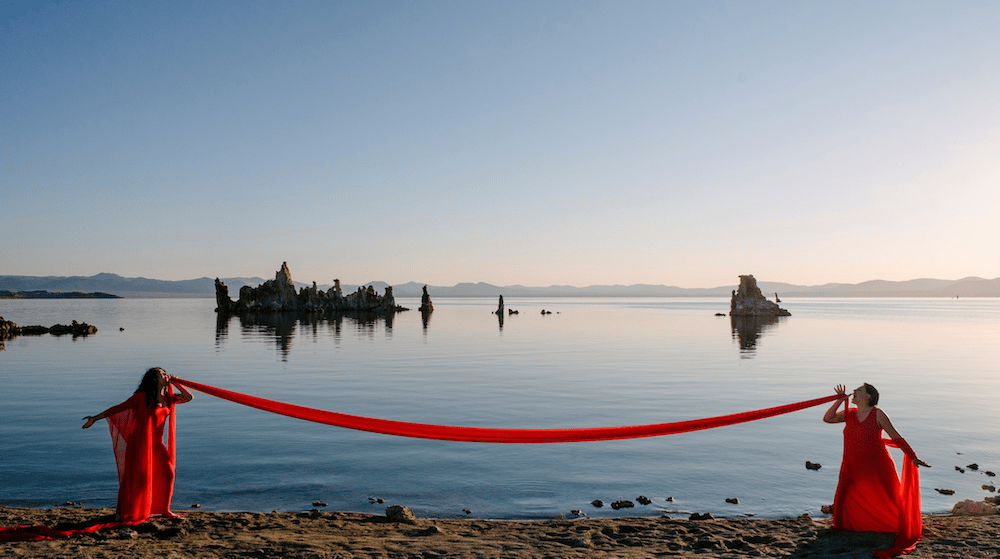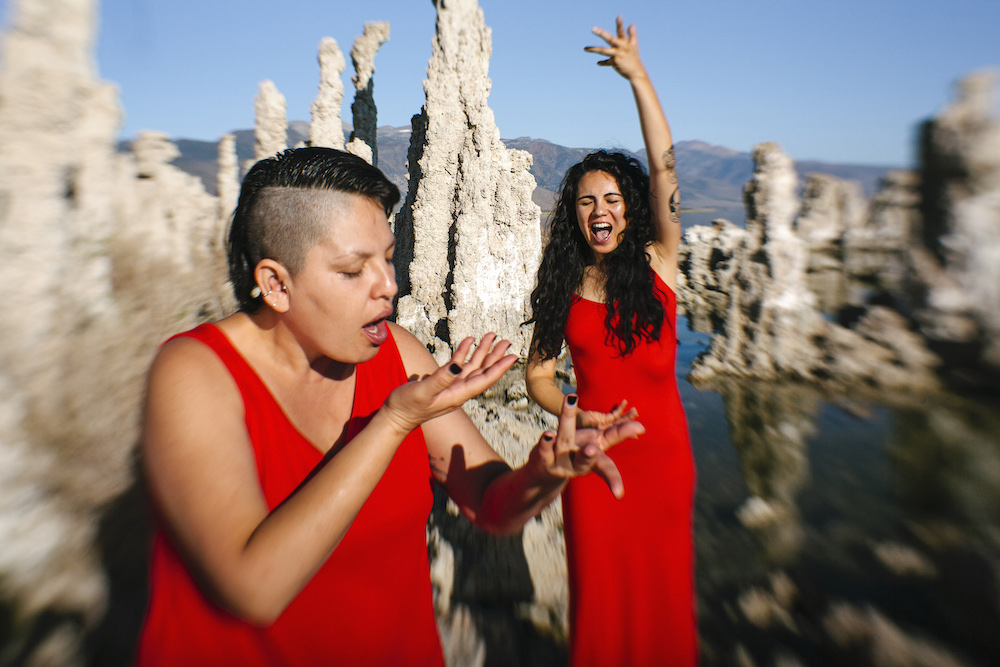Carmina Escobar is an extreme vocalist with an active teaching practice. Born in Mexico and based in Los Angeles, Escobar investigates emotions, states of alienation, and the possibilities of interpersonal connection through voice performances that challenge our understandings of musicality, gender, queerness, race, and the foundations of human communication. Her new project with Micaela Tobin, HOWL SPACE, is a virtual hub offering individualized teaching sessions, workshops, and salons. Beginning in October, HOWL SPACE’S pedagogical project will include virtual round tables with “voice Argonauts” Dorian Wood, Du Yun, El Sancha and Sean Griffin.
You work with “extreme voice” in projects such as Fiesta Perpetua!, a performance launched in 2018, which saw you floating in a raft in the Echo Park Lake and singing otherworldly songs. How is extreme voice so necessary in this political moment?
An extreme voice moves against the status quo. In this moment, it is necessary for our voices to challenge social and political constructions, to break them down or reshape them in order to shift our reality. Our voice asserts us in the world, enables us to project ourselves in it, and expresses our essence in being. Our voices in extreme decibels can join in a scream, proclaim through art, and create avenues for survival, change and agency.
There is a great muteness surrounding the pandemic. How does voice travel across the virus-related silences?
This state of constant lockdown has been a reckoning with ourselves and the power structures we live in. In between the loss, uncertainty, anxiety, and isolation, a blessing can emerge; our inner voice as a tiny dot in the background of the unconscious becomes louder and louder. We are forced to listen to it, to pay attention. I hold on to this state, to listen to my own voice, to learn from the silence which is not silence.

Photo by Sean Deyoe.
How is teaching a part of your art practice?
A radical pedagogy of the voice investigates not only the physical mechanics of its production, but also its ancestral trace. In our pedagogy, Micaela and I seek to understand the voice’s multiple possibilities by facilitating a space for its discovery and investigation. A radical pedagogy of the voice is also a tool to understand our world, to have agency in it, to express ourselves through art.
In your workshops and teaching sessions, how will we learn how to engage our voice? Is the end goal personal, spiritual, artistic, political?
The voice is a connecting thread across our communities and a tool to know ourselves. The goal of the lessons and workshops is to release the potential of your voice. When you come to understand your voice, you not only activate your sense of self but can also understand your own voice in your community. In HOWL SPACE we will investigate how your voice can aid your self-affirmation, offer therapeutic tools and be an instrument of liberation.
HOWL SPACE’S schedule of events and opportunities for registration, and info are available on their website: https://www.howlspace.com/. Follow them on Instagram @howlspace.


